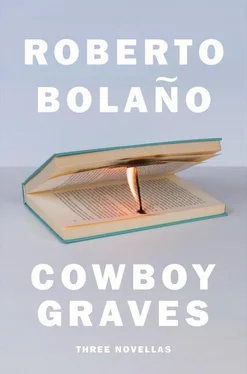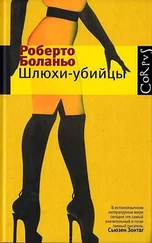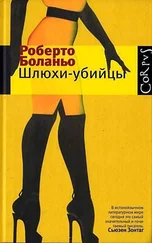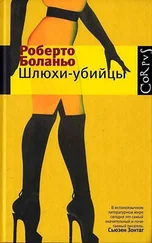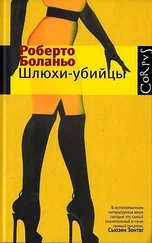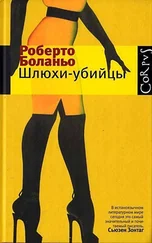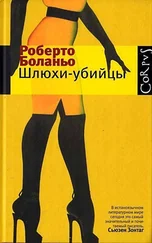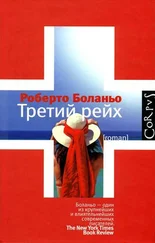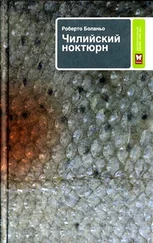My mother, I remember, read like a Uruguayan poet I had heard once on the radio. The poet’s name was Alcira Soust Scaffo, and just like me trying to imitate the way Mexicans talked, my mother tried to imitate the voice of Madame Soust Scaffo, which could swoop in a heartbeat from shrill peaks of despair to velvety depths. On a few horrific nights, my sister did a Marisol imitation, so as not to be left out. Sometimes I think about Chile and I think that all Chileans, at least those of us who are alive and who were more or less conscious in the sixties, deep down wanted to be impersonators. I remember a comedian who became famous for impersonating Batman and Robin. I remember that I collected Batman and Robin comics and I thought his impersonations were crude and sacrilegious, but I still laughed, and later I changed my mind and I didn’t think they were so crude and sacrilegious anymore, just sad. One time Alcira Soust Scaffo came through Cauquenes or Temuco, or near where we lived, one more stop on a long tour of theaters in the south of Chile, and my mother took us to see her. She was very old (though on the few posters that we saw in the Plaza de Armas and around the town hall, she looked young and serious, with a hairstyle that must have been fashionable in the forties) and her voice, heard live without the kindly mediation of the radio, made me nervous from the start. This evening of verse was interrupted several times, I still don’t know why, maybe for health reasons. After each interruption, Alcira Soust Scaffo returned to the stage whooping with laughter. My mother told me that she died soon afterward in a mental hospital in the city where she was from. After that, I couldn’t stand Neruda. At school back then, they called me the Mexican. Sometimes it was a nice nickname to have, but other times it was more like an insult. I preferred to be called El Loco.
My mother worked a lot. I don’t know whether she was good or bad at her job, but every two or three years she was transferred to a new post and a new province. And so we made the rounds of the records departments (generally just a euphemism for the hospital’s main office, often small and dilapidated) at all the hospitals in the south of Chile. She was an ace at math. My mother, I mean. And she knew it, too: I’m an ace at math, she would say with a smile, but in a distracted kind of way. Because of math she had met my father in a six-month accelerated (or advanced or intensive) statistics course in Mexico. She came back to Chile pregnant, and soon I was born. Then my father came to visit Chile to meet me, and when he left, my mother was pregnant with my sister. I never liked math. I liked train trips, I liked bus trips and staying up all night, I liked to explore new houses where we lived, but I didn’t like new schools. There was a bus line called Vía-Sur that ran down the Pan-American Highway to Puerto Montt. When I was little, I lived in Puerto Montt though now I can’t remember anything about it, except maybe the rain. I also lived in Temuco, Valdivia, Los Ángeles, Osorno, Llanquihue, Cauquenes. I saw my father twice, once when I was eight and again when I was twelve. According to my mother, it was four times, but the two times I’ve forgotten must have been when I was very little, before I can remember. Vía-Sur probably doesn’t exist anymore or the name has changed. There was also a bus line called Lit and one called the Fifth Horseman and even one called La Andina, whose logo was a mountain on fire—not a volcano, as you might expect, but a flaming mountain. Each time we moved, my father followed us like a ghost, from town to town, with his clumsy letters, with his promises. My mother, of course, had seen him more than four times in fifteen or sixteen years. Once she went to Mexico and they spent two months together, leaving me and my sister in the care of our Mapuche housekeeper. Back then we lived in Llanquihue. When my grandmother, who lived in Viña del Mar, found out that my mother had been too proud to leave us with her, she didn’t speak to her for almost a year. My grandmother saw my father as the personification of vice and irresponsibility and she always referred to him as that Mexican gentleman or that Mexican person . In the end, my grandmother forgave my mother because, just as she believed my father was vice personified, she knew that my mother was an incurable dreamer.
The name of the housekeeper we stayed with was Celestina Maluenda and she was from Santa Bárbara in the province of Bío-Bío. For many years, she lived with us and followed my mother from province to province and house to house, until the day my mother decided that we were moving to Mexico. What happened then? I don’t know. Maybe my mother asked her to come with us to Mexico and Celestina didn’t want to leave; maybe my mother said so long, Celestina, old friend, it’s over, we’re done; maybe Celestina had children or grandchildren of her own to take care of and she thought the time had come; maybe my mother had no money to buy her a ticket to Mexico. My sister loved her and when they said goodbye, she cried. Celestina didn’t cry: she stroked her hair and said take care. Me, she didn’t even shake my hand. We glanced at each other, and she muttered something between her teeth, in her usual way. Maybe she said: take care of your sister, Arturo. Or maybe she cursed me. Maybe she wished me good luck.
Around the time we stayed alone with Celestina, we were living in Llanquihue, on the edge of town, on a street with no houses, lined with poplars and eucalyptus trees. We had a shotgun that somebody had left there (nobody knew who, though I suspected it was a friend of my mother’s) and at night, before I went to bed, I would make the rounds of the house, going room by room, basement included, with the shotgun slung over my shoulder, followed by Celestina, who shone her flashlight into the corners. Sometimes, in an excess of zeal, I went out to patrol the yard, even venturing down the dark street. I made it to the first streetlight—a long way from the house—alone with the dog, and then I came back. Celestina would stand in the doorway, waiting for me. Then we shared a cigarette and went to bed. The shotgun was always under my bed. One night, though, I realized it wasn’t loaded. When I asked Celestina who had taken the cartridges, she said that she had, as a precaution, so I wouldn’t hurt anyone. Don’t you realize that a gun is no good if it’s not loaded? I said. It’s good for scaring people, said Celestina. The whole thing infuriated me and I yelled at her, even cried to get the cartridges back. Swear that you won’t kill anyone, Celestina said. Do you think I’m a murderer? I asked. I would only shoot in self-defense, to protect you and my sister. I don’t need anyone to protect me with a gun, she said. So what if a killer comes one night? What would you do then? I’d run, holding you ( usted , she said, addressing me formally, as she sometimes did) by one hand and your sister by the other. Finally I did swear, and Celestina gave me back the cartridges. When I had the shotgun loaded, I told her to put an apple on her head. You’re wrong if you think I can’t shoot straight, I said. Celestina looked at me for a long time without saying anything, her gaze deep and sad, and she said that at this rate I would end up a murderer. I don’t kill birds, I said. I’m not a fucking hunter. I don’t kill animals. It’s just self-defense. Another time, my mother went on a trip to Miami with a group from the hospital and met up with my father there. Those were the thirty most wonderful days of my life, she said. Thank goodness you didn’t get pregnant again, I said. My mother tried to hit me but I was too fast and dodged her.
Sometimes my mother paid her own way and other times my father sent her a plane ticket. He never sent tickets for us. According to my mother, it wasn’t because he didn’t want to see us but because he was scared of airplanes, afraid that the plane would crash and my sister and I would be found much later, sleeping in a nest of twisted steel, burned to a crisp in some lost American mountain range. Back then, I had serious doubts about this explanation. In the days between our first failed attempt to fly to Mexico and the second, my mother recalled my doubts and showed me (only me) the last letter my father had sent, after we’d made our travel plans. In the letter, my father said he slept with a gun in the drawer of his bedside table, in case of a crash. What does that mean? I asked. Your father is saying that he’s prepared to shoot himself if anything happens to us. What could happen to us? The plane might go down, God forbid. My father plans to kill himself if we die? Yes, said my mother, when he says he sleeps with a gun by his side, he means that he plans to kill himself if anything happens to you. By you she meant me and my sister. For days, I couldn’t get the idea of my father and his gun out of my head. Even after we made it to Mexico and before I started at a new Mexican school, when I didn’t have anything to do and I didn’t know anybody, I went looking for the gun in every room of the house, but I never found it.
Читать дальше
